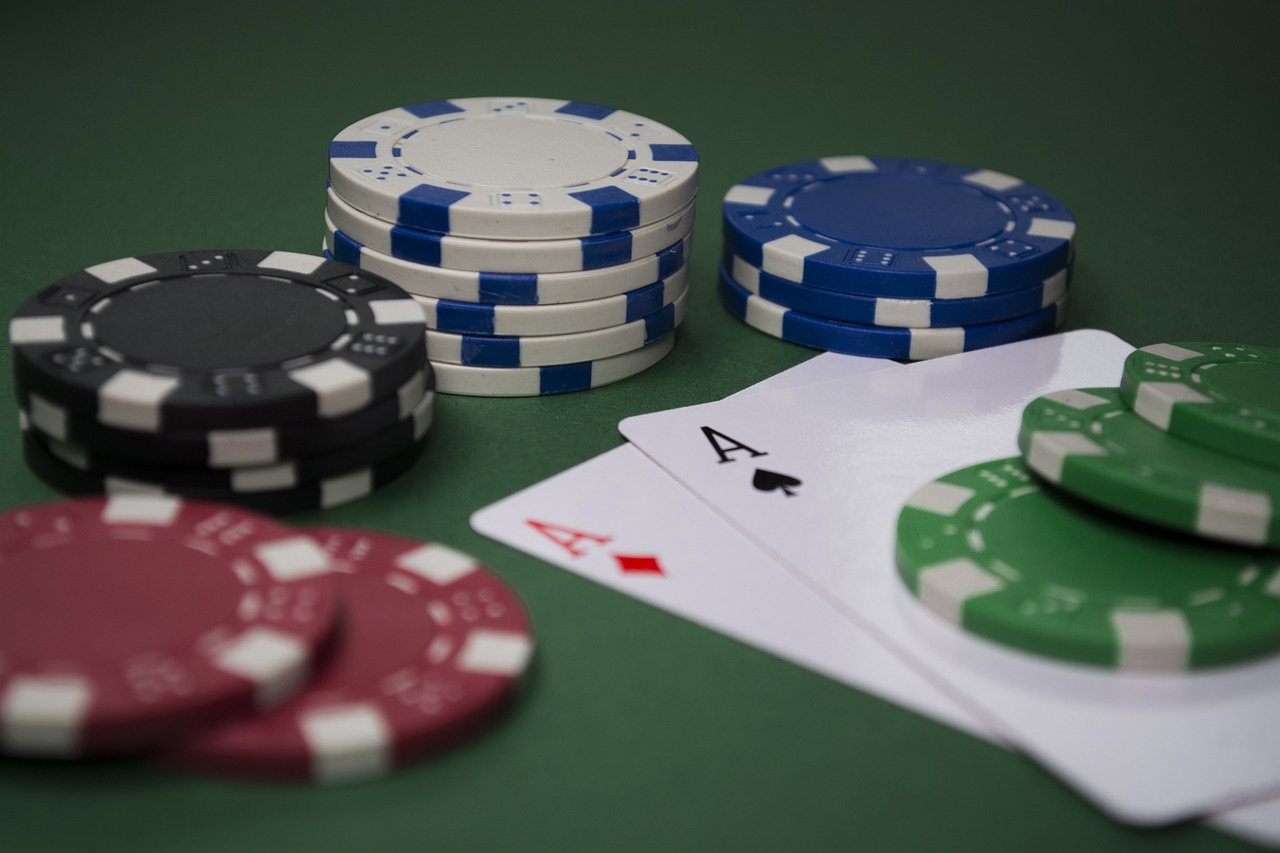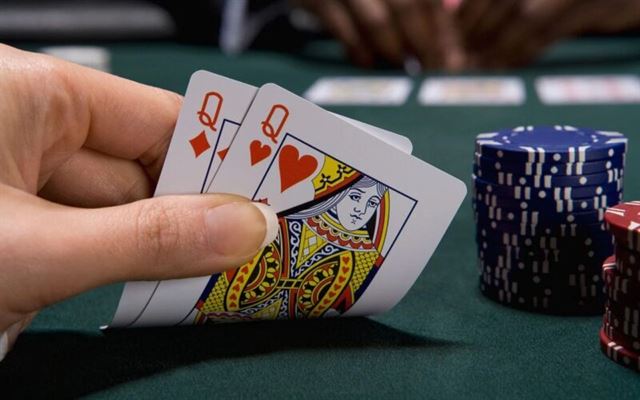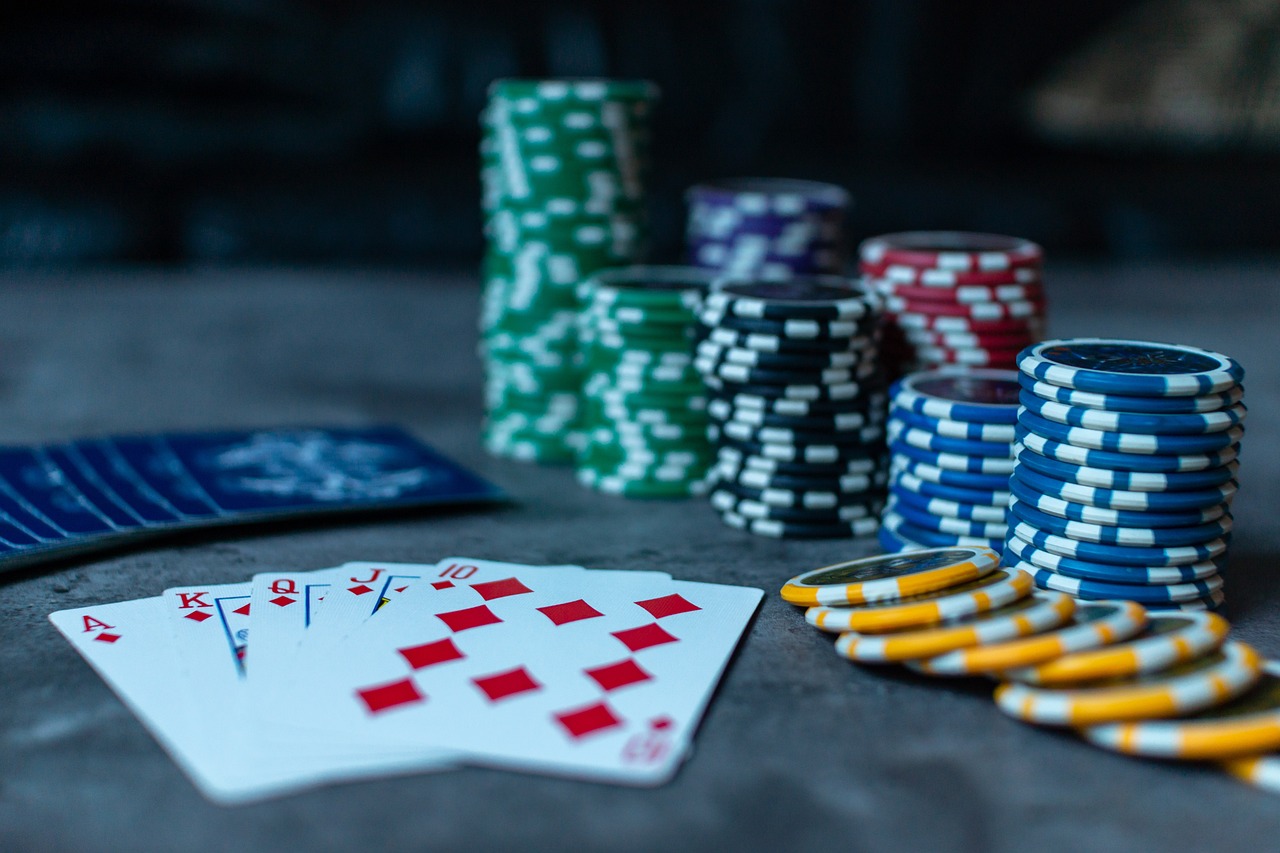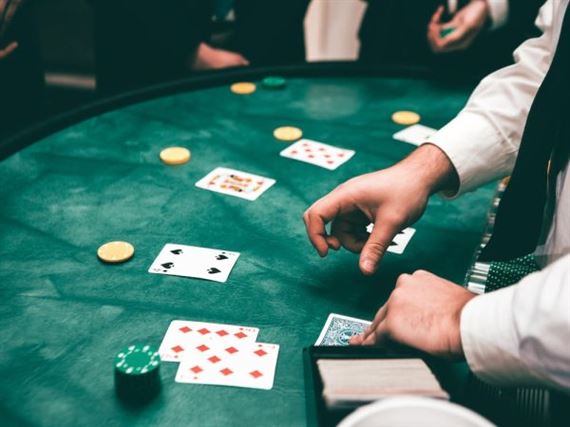Playing poker online is one thing, but stepping into a live poker tournament can be an entirely different experience. The atmosphere, the players, and the pressure are all heightened when you’re sitting at a table with real opponents in a physical setting. To help you navigate through this new territory, here are some essential tips to keep in mind for your first live poker tournament.
Essential Tips for Your First Live Poker Tournament Experience
First and foremost, it’s crucial to arrive early. Arriving early gives you time to get acclimated to the environment, find your seat, and settle any nerves before the action begins. Use this time to observe the other players, study their behaviors, and get a sense of the overall dynamic at the table. This will provide valuable insights that can inform your strategy later on.
Another tip is to manage your bankroll wisely. Determine how much money you’re willing to spend on the tournament and stick to that budget. It’s easy to get caught up in the excitement and start chasing losses, but discipline is key. Avoid going all-in on risky hands or making impulsive decisions based on emotions. Remember, poker is a game of skill and patience, so play accordingly.
Additionally, pay close attention to your table image. How you present yourself to others can greatly impact how they perceive your playing style. If you come across as tight and conservative, opponents may be more inclined to fold when you make aggressive bets. Conversely, if you appear loose and reckless, they might be more likely to call your bluffs. Be mindful of your actions and try to maintain a balanced image throughout the tournament.
Furthermore, always be aware of your position at the table. Your position determines the order in which you act during each betting round, and it can significantly affect your decision-making process. When you’re in an early position, you have less information about what your opponents might do, so it’s generally advisable to play more cautiously. On the other hand, when you’re in a late position, you have more information and can be more aggressive with your betting.
In live poker tournaments, reading your opponents is crucial. Pay attention to their body language, facial expressions, and betting patterns. Look for any tells or signs of weakness that can give you an edge. However, remember that everyone at the table is also trying to read you, so be mindful of your own actions. Stay consistent in your behavior and try not to give away too much information through your reactions.
Lastly, always be prepared for the unexpected. In live tournaments, anything can happen, and adapting to changing circumstances is essential. Be flexible with your strategy and adjust accordingly based on the dynamics at the table. Don’t be afraid to take calculated risks when necessary, but always think before you act.
Surviving your first live poker tournament may seem daunting, but with these essential tips in mind, you’ll be better equipped to handle the challenges that come your way. Remember to arrive early, manage your bankroll wisely, maintain a balanced table image, be aware of your position, read your opponents, and stay adaptable. With practice and experience, you’ll become more comfortable in this thrilling and competitive environment. Good luck!
How to Prepare Mentally and Emotionally for a Live Poker Tournament
Entering your first live poker tournament can be an exhilarating experience. The atmosphere, the adrenaline rush, and the possibility of winning big can all make it an unforgettable event. However, before you dive into the world of competitive poker, it’s important to prepare yourself mentally and emotionally. In this section, we will discuss some key strategies to help you stay focused and composed throughout the tournament.
Firstly, it’s crucial to understand that poker is a game of skill, strategy, and luck. While you can control certain aspects of the game, such as your decision-making process, there will always be an element of unpredictability. Keeping this in mind will help you maintain a balanced mindset during both wins and losses. Remember that even the best players have bad days, so don’t let setbacks discourage you.
To prepare mentally for a live poker tournament, it’s essential to study the game thoroughly. Familiarize yourself with different strategies, hand rankings, and common betting patterns. This knowledge will not only boost your confidence but also enable you to make more informed decisions at the table. Additionally, practicing online or with friends can help sharpen your skills and give you a taste of what to expect in a real tournament setting.
Another important aspect of mental preparation is managing your expectations. It’s easy to get caught up in the excitement and set unrealistic goals for yourself. Instead, focus on playing your best game and making sound decisions based on the information available. By staying grounded and focusing on the process rather than the outcome, you’ll be better equipped to handle the ups and downs of the tournament.
Emotional preparation is just as crucial as mental preparation when it comes to live poker tournaments. The pressure and intensity can be overwhelming, especially for beginners. To navigate these emotions successfully, it’s important to develop a strong sense of self-control and discipline. Remind yourself to stay calm, patient, and composed throughout the tournament, regardless of the outcomes.
One effective way to manage your emotions is through deep breathing exercises and visualization techniques. Taking a few moments before each hand to center yourself can help reduce anxiety and increase focus. Visualize yourself making confident decisions, staying cool under pressure, and maintaining a positive mindset. These techniques can help you stay in control of your emotions and make rational choices instead of succumbing to impulsive reactions.
Moreover, it’s crucial to remember that poker is a game of variance. Even the most skilled players will experience periods of bad luck. Understanding this concept will prevent you from getting discouraged or taking losses personally. Instead, view each hand as an opportunity to learn and improve your skills. By adopting a growth mindset, you’ll be able to bounce back from setbacks and continue playing at your best.
In conclusion, preparing mentally and emotionally for your first live poker tournament is essential for success. Study the game, manage your expectations, and develop self-control and discipline. Remember that poker is a combination of skill and luck, and even experienced players have their off days. By staying focused, composed, and adaptable, you’ll be well-equipped to navigate the challenges and enjoy the thrill of the tables.
Strategies for Surviving the Tables in Your First Live Poker Tournament
Entering your first live poker tournament can be an exhilarating yet nerve-wracking experience. The atmosphere is charged with anticipation as you take your seat at the table, surrounded by experienced players and the sound of shuffling chips. To ensure that you not only survive but thrive in this competitive environment, it is essential to have a solid strategy. In this article, we will explore some key strategies that will help you navigate through your first live poker tournament.
First and foremost, it is crucial to start the tournament with a clear mindset. Many beginners make the mistake of letting their nerves get the best of them, leading to poor decision-making. Take a deep breath, relax, and remind yourself that you have prepared for this moment. Confidence is key, and a calm demeanor will help you stay focused on the game ahead.
As the tournament progresses, it is important to pay close attention to your opponents. Watch for patterns in their betting behavior and try to identify any tells they may have. Observing how they react to certain situations can provide valuable insight into their playing style. This information can then be used to your advantage when making strategic decisions later in the game.
Another crucial aspect of surviving the tables is managing your bankroll effectively. Set a budget before entering the tournament and stick to it. It is easy to get caught up in the excitement and start making reckless bets. However, being disciplined with your bankroll will ensure that you can withstand the ups and downs of the game without going bust too soon.
Furthermore, adjusting your strategy based on the stage of the tournament is vital. In the early stages, when the blinds are low, focus on playing tight and conservative. Avoid unnecessary risks and aim to build your chip stack steadily. As the blinds increase and the pressure mounts, however, it may become necessary to loosen up and play more aggressively. This change in strategy will help you stay competitive and avoid being blinded out.
In addition to adjusting your playing style, it is essential to be adaptable when facing different types of opponents. Some players may be more aggressive, while others are more passive. Tailoring your approach to each opponent can give you a significant advantage. For example, against an aggressive player, you may choose to play more defensively and wait for strong hands. Conversely, against a passive player, you can take control of the table and use your position to bluff more effectively.
Lastly, never underestimate the power of patience. Poker tournaments can last for hours or even days, and maintaining focus throughout requires mental stamina. Avoid making impulsive decisions out of boredom or frustration. Stick to your strategy, trust your instincts, and remember that one well-timed move can turn the tides in your favor.
Surviving your first live poker tournament is no easy feat, but with the right strategies in place, it is entirely achievable. By starting with a clear mindset, paying attention to your opponents, managing your bankroll effectively, adjusting your strategy based on the stage of the tournament, adapting to different opponents, and exercising patience, you can navigate through the tables with confidence. Remember, every hand presents an opportunity to learn and improve. So embrace the challenge, enjoy the experience, and let the cards fall where they may.
Common Mistakes to Avoid as a Beginner in a Live Poker Tournament
Entering your first live poker tournament can be an exhilarating experience. The thrill of sitting at the table, surrounded by seasoned players and feeling the weight of real chips in your hands, is unmatched. However, as a beginner, it’s crucial to understand that live tournaments are a different ball game altogether. To ensure you have a successful and enjoyable experience, it’s important to avoid some common mistakes that beginners often make.
One of the most prevalent mistakes beginners make is overestimating their skills. Many new players come into a live tournament with a false sense of confidence, thinking that they can rely solely on their online poker skills. While online poker is an excellent way to practice and learn the basics, it doesn’t fully prepare you for the dynamics of a live tournament. In-person games involve reading opponents’ body language, managing your emotions, and adapting to the changing dynamics of the table. Therefore, it’s essential to acknowledge that there is a learning curve and approach the tournament with humility and a willingness to learn from more experienced players.
Another mistake commonly made by beginners is playing too many hands. Inexperienced players often fall into the trap of wanting to participate in every hand, fearing that they might miss out on a winning opportunity. This approach is a recipe for disaster. In live tournaments, patience is key. It’s crucial to wait for premium starting hands and play strategically rather than impulsively. By being selective about the hands you play, you increase your chances of making profitable decisions and avoiding unnecessary losses.
Furthermore, failing to manage your bankroll effectively is another pitfall that beginners should avoid. It’s easy to get caught up in the excitement of the tournament and bet more than you can afford. Setting a budget before entering the tournament and sticking to it is vital. Remember, poker is a game of skill and luck, and even the best players experience losing streaks. By managing your bankroll wisely, you ensure that a few bad hands or unlucky breaks don’t leave you broke and disheartened.
Additionally, beginners often neglect the importance of paying attention to their opponents’ actions and tendencies. Live tournaments provide an opportunity to gather valuable information about your opponents through observation. Watching how they bet, react to certain situations, or handle their chips can give you insights into their playing style and potential weaknesses. Ignoring this aspect and solely focusing on your own cards is a missed opportunity to gain an edge over your opponents.
Lastly, failing to control your emotions is a common mistake made by beginners in live poker tournaments. The pressure and intensity of the game can lead to frustration, tilt, or even anger. It’s crucial to maintain composure and not let emotions cloud your judgment. Making impulsive decisions based on emotional reactions will only lead to costly mistakes. Learning to detach yourself emotionally from the outcome of each hand and maintaining a calm and focused mindset is essential for long-term success in live tournaments.
In conclusion, as a beginner in a live poker tournament, it’s important to be aware of the common mistakes that many newcomers make. Avoiding overconfidence, being selective with hands, managing your bankroll effectively, observing opponents, and controlling your emotions are all crucial aspects of successful tournament play. By keeping these tips in mind, you’ll increase your chances of enjoying a positive and rewarding experience at your first live poker tournament.





